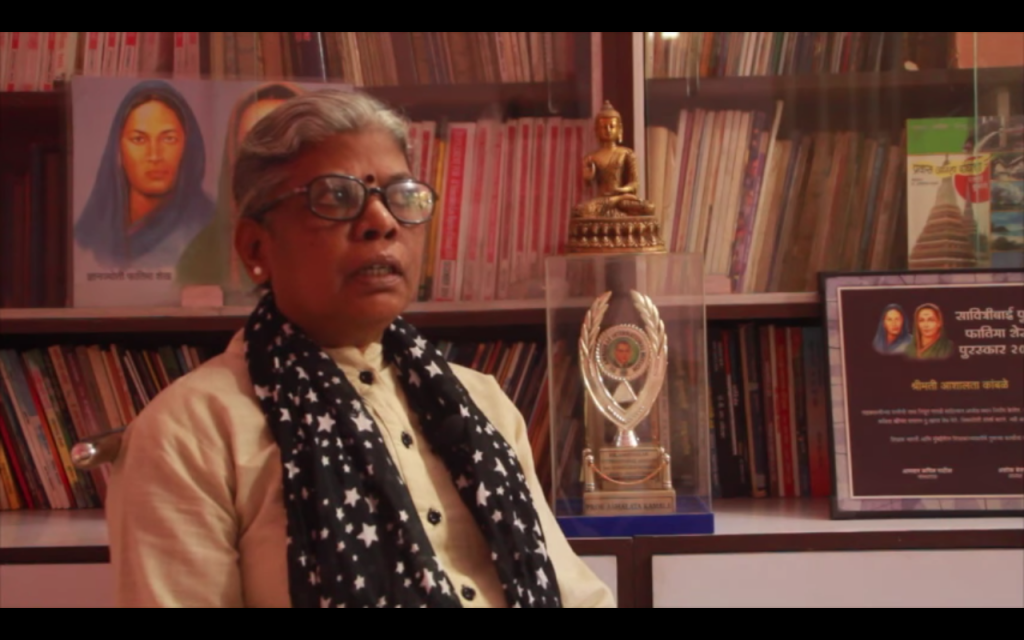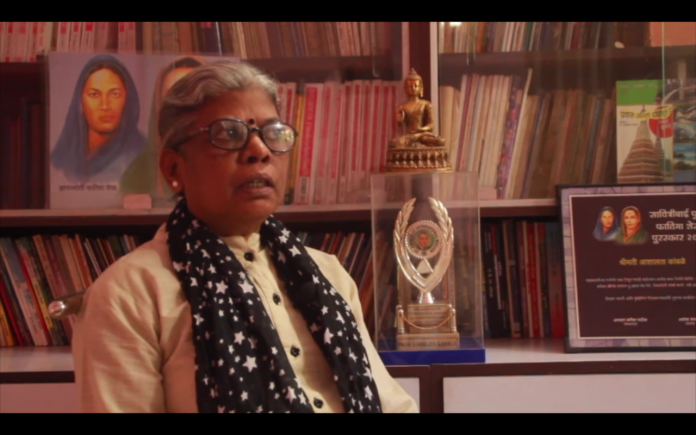By Shiva Thorat, Twocircles.net
How does one define motherhood? Is it not important to locate the position of scholars who have commented and written extensively on the concept of universal motherhood? Do these theories and practices consider the marginalised sections of the society too? According to Professor Ashalata Kamble, an author of five books and an inspiration for many Dalit students, the present idea of motherhood in India is defined by Brahmins and other privileged sections. And this is precisely what she is trying to change with her writings.
Professor Ashalata Kamble was born to Buddhist parents in Konkan, but it wasn’t like the caste factor disappeared after her parents converted to Buddhism in 1956 following the movement spearheaded by Dr Babasaheb Ambedkar. “We are born human, but we had to still ‘follow’ the caste system. We became Buddhists, but continued to be identified as Mahars,” she says. At an early age, she faced the issues of caste; but thanks to her mother she also learnt how to handle and fight against such inhuman practices. “Instead of making us ignorant, our mother fought against the caste hierarchical society, and taught us the philosophy of Buddha and the teachings of Ambedkar.” Seeing her mother handle her children, fighting caste and ensuring that all her children attended schools and colleges inspired Professor Kamble to delve deeper into the idea of motherhood and the writings on it.

Kamble’s understanding of womanhood in respect to marginalised communities grew stronger after she moved to Mumbai. Before that, she had been teaching in a school in Konkan. Her association with Ambedkar started when she was a teacher, and it is a bond that continues to this day. In 1989, she moved to Mumbai and has been working here ever since. In 2016, she retired after 27 years in KV Pandarkar Mahavidyalaya.
A staunch Ambedkarite, Kamble has been working with the Dalits for the past 35 years, and while she has been associated with various organisations like BAMCEF in the past, she now works independently.
Kamble says that the invisibility of progressive and radical personalities like Bahinabai Chaudhari and Savitrimai Phule in the popular discourse bothered her. Both women had made important literary contributions to social movement. Prof. Kamble said, “We have seen in feminism that it is about choice. But I have a problem with that: who has depicted the choices these women had? Thanks to the works and efforts of these towering personalities, our struggle continues today also. I was able to read Virginia Woolf, Simone de Beauvoir and a lot of feminists writers. I became a professor because of the efforts of people like Bahinabai and Savitrimai,” she added.
Talking about her works, she stresses that a lot of work on motherhood is Brahminical and builds a world of fake motherhood. “Labour motherhood is the life of Dalit women. Motherhood is not giving birth to the child, but working for the marginalised section,” she says. In Amachi Aai (Our Mother), Kamble says that while mother’s love for her child is universal, how the same love is provided to the child depends on how the mother spends her time. “A woman who has a secure, safe life can devote all her love and time to her child. But can a woman who works as a labourer do the same? Does she have the same option?” she asks.
“A woman who has to earn a living in order to feed her kids…does her ‘motherhood’ not matter? Is it that she loves her child lesser? No. My mother went out to work four days after I was born…the life of a woman who works as a labourer is very different…she is the world’s greatest mother. These are the things I am trying to address,” she says.
Till now, five of her books have been published and she is planning to publish 14 more books which are in Marathi. Among the books, Bahinabainchi Kavita – Ek Akalan got international recognition in 2000. Following this, Yashodarechi Lek – Poems (The daughter of Yashodhara) was released in 2004, Samarth Striyancha Itihas (History of Independent Women) was released in 2009 and Amachi Aai – Autobiography (Our Mother) got critical attention among the literary circle of Maharashtra when it was released in 2010.
Ramakant Jadhav, publisher of Hira Prakashan in Dombivali, Maharashtra said Kamble’s writings are known to inspire people to think and understand more. “Her books are appreciated by our readers. Professor Kamble makes us question and think twice about our society, and this is why we can ill afford to ignore her writing”
Diksha, her 23-year-old daughter who is doing occupational therapy in the medical field, said, “My mother has given us freedom to do what we want. Her involvement in our life is just like friend not more than that but I can see labor motherhood in her she do a lot of work to feed us and make us happy”.

